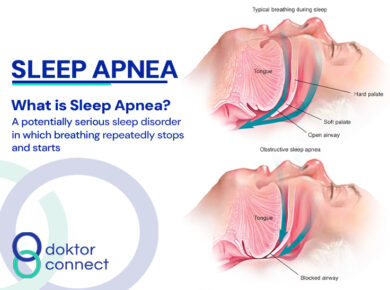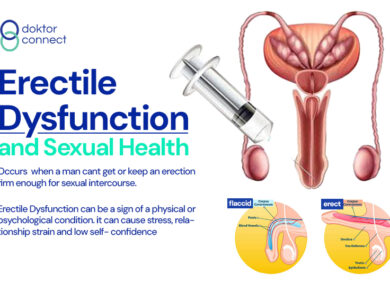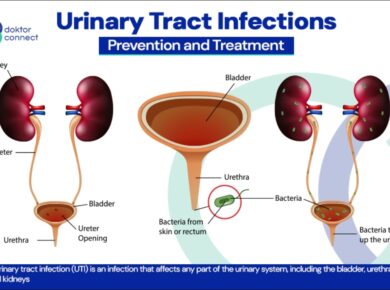Nutrition is a crucial and easily overlooked contributor to health. A good number of us learnt the six classes of food growing up. However, the classes we commonly remember are carbohydrates, protein, fat, and vitamins. On the contrary, we often forget minerals and water are very important.
Minerals are divided into two categories; major and trace. Minerals whose estimated daily dietary need is 100mg or more are termed major minerals whereas trace minerals are needed in amounts less than 100mg daily. Major minerals include; sodium, potassium, chloride, calcium, phosphorus, magnesium etc, while trace minerals include zinc, iron, iodine, copper etc.
Now let’s discuss these minerals; their sources, functions, daily requirements, deficiency and toxicity effects.
Sodium, Chloride and Potassium
These three minerals will be discussed together because their functions are interrelated. Sodium and Chloride are found in the extracellular fluid while potassium is the primary intracellular cation. They play a role in the maintenance of water balance and they are also components of the “kidney function test.”
Dietary Sources
Sodium Chloride, commonly known as table salt, is a common flavouring and food preservative. As much as 50-75% of sodium in our diet is added by food manufacturers, another 15% is added during cooking while naturally occurring sodium foods e.g, eggs, milk, meat and vegetables account for 10-15%.
Certain mouthwashes and toothpaste contain sodium fluoride. On the other hand, sodium is also obtained from sodium glutamate which is used as a food additive worldwide.
Sodium chloride provides nearly all the chloride content in the diet.
Potassium-rich food includes bananas, oranges, carrots, tomatoes, beans, pears.
Daily recommended amount for adults and adolescents;
- Sodium- 2.3g
- Chloride- 1.8-2.3g
- Potassium- 4.7g
The average Nigerian consumes sodium chloride (salt) in excess. A teaspoon of salt has approximately 2300mg of sodium which is about the daily recommended intake. When combined with that from other sources, it easily becomes too much for the body to handle.
Functions of Sodium, Chloride, and Potassium
- Chloride is a component of hydrochloric acid which is responsible for the acidic nature of the stomach and consequently helps to digest food
- Sodium and potassium regulates water balance
- Potassium maintains a steady heartbeat and nerve impulse transmission.
Deficiency and Toxicity
Diet rich in sodium increases the rate at which calcium is excreted by the kidney to the urine thereby increasing your risk for osteoporosis; a condition associated with low bone mass and increased fracture risk. The Lifepro body composition scale tells you what your bone mass is, you can get one here.
Excess consumption of sodium is a major risk factor for developing hypertension
Also, long term use of laxatives and medications such as diuretics, persistent vomiting and diarrhoea can cause low blood potassium.
Calcium
Calcium is the most abundant mineral in the human body. Approximately 99% of calcium within the human body is located in the bones and teeth.
Dietary sources: Dairy and vegetables such as milk, almonds, broccoli, spinach, fortified flour etc.
Functions of Calcium in the body
- Transmission of nerve impulses
- Regulates muscle contraction including heart rhythm
- Helps maintain healthy blood pressure
- Also, it provides strength and rigidity to bones
Daily Recommended Amount
- Adolescent aged 11-18yrs- 1300mg
- 18-50yrs- 1000mg
- Older than 50yrs- 1200mg for females, 1000mg for males
- Pregnant and lactating women- 1500-2000mg
- 70 and above- 1200mg
Effects of Calcium deficiency
- Bone disease such as osteomalacia- which is demineralisation of the bone.
- Osteoporosis- which is the loss in total amount of the bone.
- Growth retardation and rickets in children. Fun fact, moderate and sensible exposure to the sun around midday is a good source of Vitamin D and Vitamin D helps the body absorb calcium.
- Skeletal muscle cramping
- Hypertensive disorders in pregnancy such as pre-eclampsia; a condition associated with high blood pressure and high levels of protein in the urine has been linked to low calcium levels.
Calcium toxicity
This is mostly due to misuse of calcium supplements. Also, certain medical conditions can increase the blood calcium level. An example is high levels of parathyroid hormones.
In addition, excess calcium increases your risk of having kidney stones.
Phosphorus
It is the second most abundant mineral in the body. Additionally, approximately 85% is found in the bone.
Dietary sources of Phosphorus
Meat, poultry, eggs, fish, milk and milk products, cereals, legumes, peanut butter and grains; wheats, oats, corns.
Functions of Phosphorus
- It is a part of phospholipids, which carry lipids in blood and help to absorb nutrients.
- It helps in muscle contraction.
- Plays a role in teeth and bone structure because it is a component of hydroxyapatite which combines with calcium to improve bone strength.
- It also helps convert food to energy as well.
Daily Recommended Amount
- 9-18yrs- 1250mg
- Older than 18- 700mg
- Pregnant and lactating females- 700mg
Deficiency and Toxicity
Low levels of phosphorus or phosphorus toxicity is a bit rare. However, toxicity can occur in infants who take formulas that have high levels of phosphorus.
Magnesium
It is the twelfth most abundant element in the human body. In fact, up to two-thirds of Magnesium in the body is associated with bone tissue.
Dietary sources
Whole grains cereals, nuts, legumes, seafood, tea, green leaves rich in chlorophyll.
Function
- Magnesium helps in the metabolism of other nutrients. For instance, converting Vitamin D to its active form
- It is important in metabolic pathways as some enzymes depend on Magnesium for protein synthesis, DNA replication etc
- It ensures that the parathyroid glands, which produce hormones important for bone health, works normally
Daily recommended amount for adults and adolescents
- Males- 410-420mg
- Females-310-360mg
- Lactation and pregnancy- 320-400mg
Deficiency and Toxicity
Deficiency is rare. It can arise from vomiting and diarrhoea, alcohol abuse, excessive use of diuretic drugs.
Low levels of magnesium have been linked to ischemic heart disease.
Magnesium toxicity affects the excretion of calcium and phosphorus. Moreover, it can also lead to kidney insufficiency.
In conclusion, you will agree with me that minerals should not be overlooked and we should pay more attention and take them in moderation.
To check the levels of some of these minerals in your blood; a component of the Kidney function test, kindly click here. Should you have any questions regarding your medications or any health concerns, you can speak to a doctor now.




